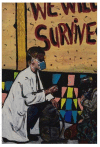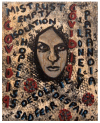Exploring the Potential of Implementing Managed Alcohol Programmes to Reduce Risk of COVID-19 Infection and Transmission, and Wider Harms, for People Experiencing Alcohol Dependency and Homelessness in Scotland
- PMID: 34886249
- PMCID: PMC8657286
- DOI: 10.3390/ijerph182312523
Exploring the Potential of Implementing Managed Alcohol Programmes to Reduce Risk of COVID-19 Infection and Transmission, and Wider Harms, for People Experiencing Alcohol Dependency and Homelessness in Scotland
Abstract
People who experience homelessness and alcohol dependency are more vulnerable than the general population to risks/harms relating to COVID-19. This mixed methods study explored stakeholder perspectives concerning the impact of COVID-19 and the potential utility of introducing managed alcohol programmes (MAPs) in Scotland as part of a wider health/social care response for this group. Data sources included: 12 case record reviews; 40 semi-structured qualitative interviews; and meeting notes from a practitioner-researcher group exploring implementation of MAPs within a third sector/not-for-profit organisation. A series of paintings were curated as a novel part of the research process to support knowledge translation. The case note review highlighted the complexity of health problems experienced, in addition to alcohol dependency, including polysubstance use, challenges related to alcohol access/use during lockdown, and complying with stay-at-home rules. Qualitative analysis generated five subthemes under the theme of 'MAPs as a response to COVID-19': changes to alcohol supply/use including polysubstance use; COVID-19-related changes to substance use/homelessness services; negative changes to services for people with alcohol problems; the potential for MAPs in the context of COVID-19; and fears and concerns about providing MAPs as a COVID-19 response. We conclude that MAPs have the potential to reduce a range of harms for this group, including COVID-19-related harms.
Keywords: COVID-19; alcohol; alcohol use disorders; harm reduction; homelessness; managed alcohol programmes.
Conflict of interest statement
The authors declare no conflict of interest.
Figures
References
-
- National Institute for Health and Care Excellence Alcohol-Use Disorders: Diagnosis, Assessment and Management of Harmful Drinking (High-Risk Drinking) and Alcohol Dependence. 2011. [(accessed on 2 June 2021)]. Available online: https://www.nice.org.uk/guidance/cg115.
-
- NHS Risks: Alcohol Misuse. [(accessed on 2 June 2021)];2018 Available online: https://www.nhs.uk/conditions/alcohol-misuse/risks/
-
- Pauly B., Brown M., Evans J., Gray E., Schiff R., Ivsins A., Krysowaty B., Vallance K., Stockwell T. There is a Place: Impacts of managed alcohol programs for people experiencing severe alcohol dependence and homelessness. Harm. Reduct. J. 2019;16:70. doi: 10.1186/s12954-019-0332-4. - DOI - PMC - PubMed
-
- World Health Organisation Global Status Report on Alcohol and Health 2018. 2018. [(accessed on 2 June 2021)]. Available online: https://www.who.int/publications/i/item/9789241565639.
Publication types
MeSH terms
Grants and funding
LinkOut - more resources
Full Text Sources
Medical




